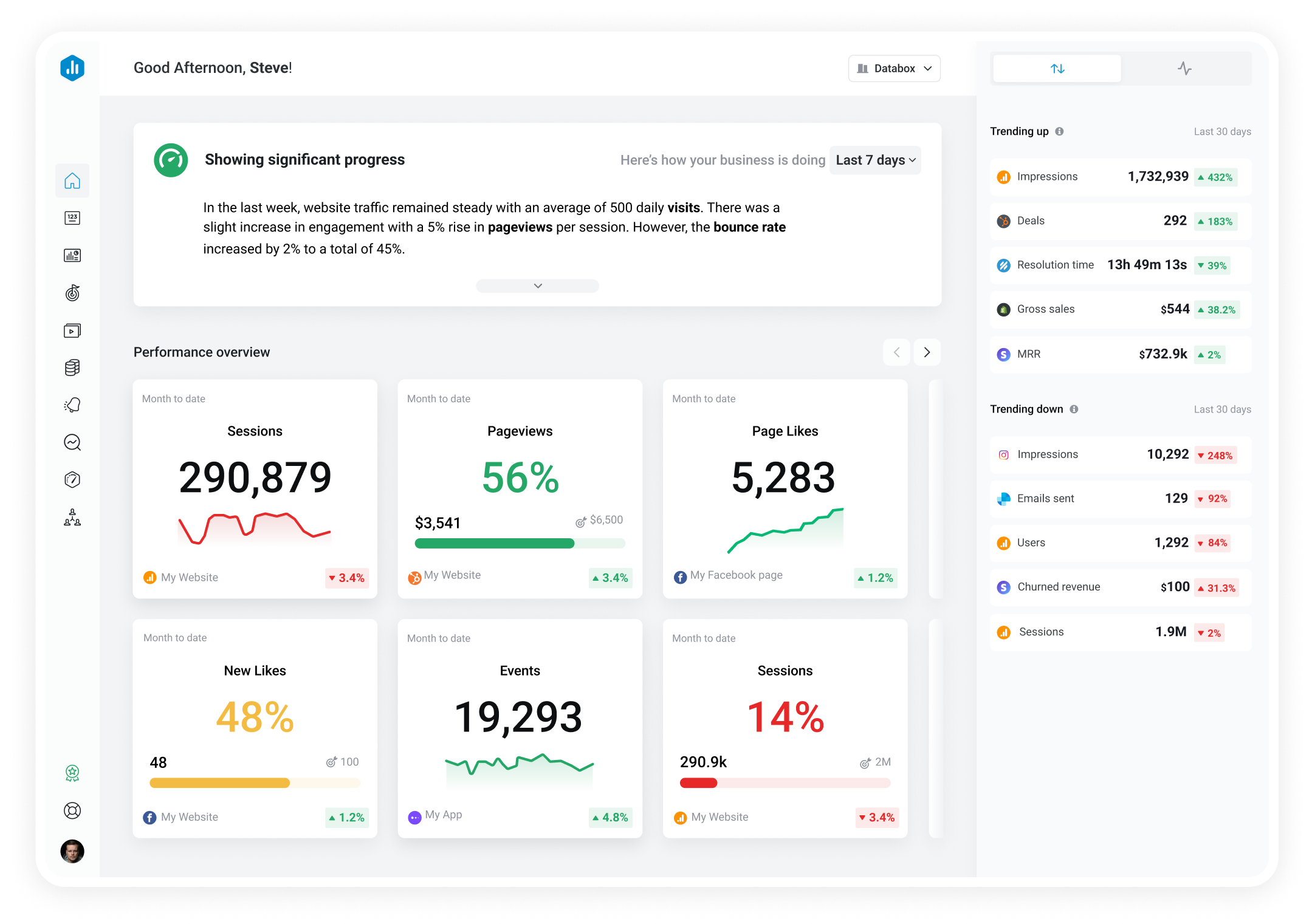Track all of your key business metrics from one screen
GET STARTED
 QuickBooks
Total Expenses (Cash) by Vendor
QuickBooks
Total Expenses (Cash) by Vendor Total Expenses (Cash) by Vendor metric shows the total amount of cash paid to each vendor as expenses over a specific time period. It helps businesses track their spending and identify where their money is going.
With Databox you can track all your metrics from various data sources in one place.

Used to show comparisons between values.
Databox is a business analytics software that allows you to track and visualize your most important metrics from any data source in one centralized platform.
To track Total Expenses (Cash) by Vendor using Databox, follow these steps:
 Goals
Goals Scorecards
Scorecards Metric Digest
Metric Digest Metric Builder
Metric Builder Data Calculations
Data Calculations Performance Screen
Performance Screen